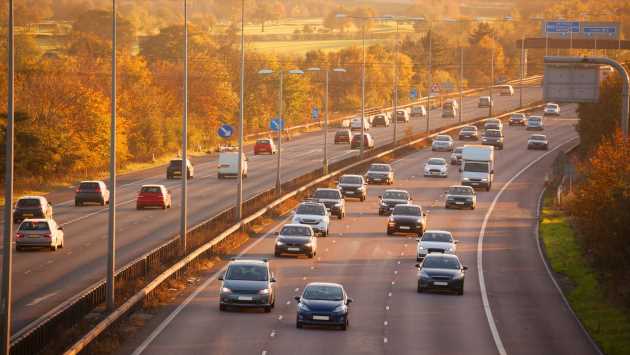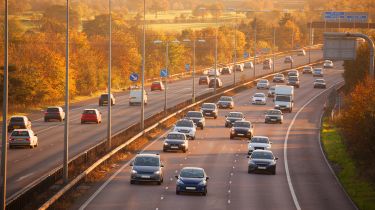The Social Market Foundation says fuel duty unfairness opens the door for road pricing schemes
The idea of road pricing is commonly considered to be as popular as the poll tax, but polling by the Social Market Foundation suggests drivers have become much more open-minded.
Following a survey of 3,000 adults, the SMF claims the public’s dislike of “unfair” fuel and road taxes is now so high that drivers would actually prefer a new system of road pricing. The term road pricing refers to schemes where drivers are charged for using particular roads or for the miles they travel, and is often mooted as the best way for the treasury to recoup the loss of fuel duty on petrol and diesel as drivers switch to electric cars (EVs).
VED road tax: how does car tax work and how much will it cost?
Previously road pricing has been considered politically toxic by the UK’s major political parties, and the Labour government scrapped plans to introduce it in the mid-noughties fearing a voter backlash. At that time 1.8 million signatories to a petition against the plans were recorded on the Number 10 website, and it’s only recently that road pricing has returned to mainstream political debate.
In 2019 the Institute for Fiscal Studies argued the government needed to act swiftly on road pricing before the current £30bn level of fuel revenues disappears and drivers get used to the idea of low tax motoring. In 2020 the House of Commons library published a Road Pricing briefing paper.
According to the SMF poll released today, 40 per cent of people now support road pricing to replace road and fuel duties, 36 per cent of people don’t have a view either way, and only 26 per cent are opposed to the idea.
Scott Corfe, Research Director at the Social Market Foundation, said: “For too long politicians have thought of reforming motoring taxes as grasping the nettle, fearful that a backlash from drivers will hit them at the polls.
“In reality, the public want to see a better, fairer system of how the UK taxes drivers. Our research shows that road pricing, often perceived as politically poisonous, is seen as a preferential option compared to our existing tax regime.
“Britain needs a system of road taxes fit for the 21st Century and the age of the electric vehicle. It is vital that ministers recognise how far public opinion has shifted on road pricing over the last two decades. Voters will not punish them for seeking an equitable reform of motor taxation.”
Specifics on how nationwide road pricing would work have yet to emerge, but it is generally considered that a pay-per-mile system, potentially linked to GPS modules in cars, or the UK’s extensive ANPR (Automatic Number Plate Recognition) camera system, would be brought into play. Potentially higher charges for more polluting cars could also be introduced.
Specifics on how nationwide road pricing would work have yet to emerge, but it is generally considered that a pay-per-mile system, potentially linked to GPS modules in cars, or the UK’s extensive ANPR (Automatic Number Plate Recognition) camera system, would be brought into play. Potentially higher charges for more polluting cars could also be introduced, and charges could be higher at peak times or in areas where congestion or pollution is a particular problem.
What’s your view on the road charging debate? Let us know in the comments section below…
Source: Read Full Article


 VED road tax: how does car tax work and how much will it cost?
VED road tax: how does car tax work and how much will it cost?